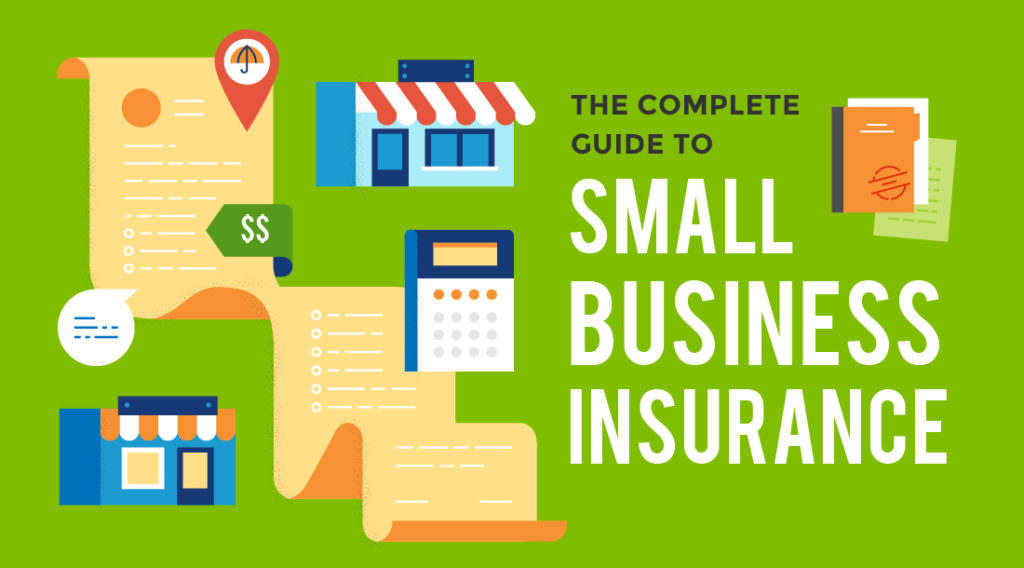Starting and running a small business is an exciting journey, but it comes with its share of risks. From liability claims to property damage, business owners need protection to safeguard their investment, employees, and assets. This is where small business insurance comes into play. Understanding what insurance coverage your small business needs can make the difference between a setback and a smooth recovery if things go wrong.
In this article, we will discuss the different types of small business insurance, why it's crucial for your business, and how to choose the right coverage to protect your company.

Table of Contents:
- What is Small Business Insurance?
- Why Do Small Businesses Need Insurance?
- Types of Small Business Insurance
- General Liability Insurance
- Property Insurance
- Professional Liability Insurance
- Workers' Compensation Insurance
- Commercial Auto Insurance
- Business Interruption Insurance
- How to Choose the Right Small Business Insurance
- Common Myths About Small Business Insurance
- Tips for Reducing Small Business Insurance Costs
- Frequently Asked Questions (FAQs)
- Conclusion
1. What is Small Business Insurance?
Small business insurance refers to various policies designed to protect businesses from financial losses caused by accidents, lawsuits, property damage, theft, and other unforeseen events. These policies help business owners manage risks and continue operations with minimal disruption.
Small businesses, especially those just starting, often face significant financial challenges. Insurance provides a safety net, ensuring that business owners don't face financial ruin if something goes wrong.
2. Why Do Small Businesses Need Insurance?
Small businesses are vulnerable to many risks, from property damage to lawsuits, and without the right insurance coverage, the financial burden of these risks can be overwhelming. Here are a few key reasons why small businesses need insurance:
a. Protection from Lawsuits
Even a small mistake can lead to a lawsuit. General liability insurance can protect your business from lawsuits related to property damage, personal injury, or negligence, ensuring that legal fees, settlements, and judgments are covered.
b. Financial Protection
Accidents happen, and property damage or theft can significantly affect your bottom line. Business insurance helps cover repair or replacement costs, allowing your business to recover without a financial setback.
c. Employee Protection
If your business has employees, workers’ compensation insurance is often required by law. This insurance covers medical expenses and lost wages for employees who are injured or fall ill while on the job.
d. Compliance with Local Laws
In many places, certain types of insurance are legally required for businesses. Failing to comply with these regulations can lead to fines and penalties. For example, workers' compensation is required in most states for businesses with employees.
3. Types of Small Business Insurance
Different businesses face unique risks, which means there’s no one-size-fits-all insurance plan. Below are the most common types of small business insurance coverage.
a. General Liability Insurance
This is one of the most essential types of insurance for small businesses. General liability insurance protects against common risks such as third-party bodily injury, property damage, and advertising injuries (e.g., defamation or copyright infringement).
Coverage Includes:
- Legal defense and court costs if you're sued
- Medical expenses for injuries on your premises
- Property damage caused by your business operations
b. Property Insurance
Property insurance protects your physical assets, including your building, office equipment, inventory, and supplies, in case of damage caused by fire, theft, vandalism, or natural disasters.
Coverage Includes:
- Repair or replacement of damaged or stolen property
- Coverage for business-owned property at your physical location or in transit
c. Professional Liability Insurance
Also known as errors and omissions (E&O) insurance, professional liability insurance protects businesses that provide professional services or advice from lawsuits alleging negligence, errors, or omissions.
Coverage Includes:
- Legal costs associated with defending against negligence claims
- Coverage for mistakes made during service provision that cause harm to a client
d. Workers’ Compensation Insurance
Workers' compensation is designed to cover employees who are injured or become ill as a result of their work. It typically covers medical bills, rehabilitation costs, and lost wages. This insurance is required in most states if you have employees.
Coverage Includes:
- Medical expenses for work-related injuries or illnesses
- Lost wages during recovery periods
- Legal costs in case of a workers’ compensation lawsuit
e. Commercial Auto Insurance
If your business uses vehicles for operations—whether for deliveries, transporting goods, or business travel—commercial auto insurance is essential. It covers damages to company-owned vehicles and liability for accidents caused by employees using those vehicles.
Coverage Includes:
- Property damage and bodily injury caused by a business vehicle
- Theft or damage to business vehicles
- Coverage for personal injuries or medical expenses related to a vehicle accident
f. Business Interruption Insurance
Business interruption insurance covers lost income and operating expenses if your business is temporarily closed due to unforeseen events like a natural disaster, fire, or other catastrophic events.
Coverage Includes:
- Replacement of lost income during the downtime
- Coverage for fixed costs (e.g., rent, salaries) during the business interruption period
- Additional expenses for the temporary location of your business operations
4. How to Choose the Right Small Business Insurance
Choosing the right insurance for your small business can be a daunting task. Here are some steps to help you find the best coverage:
a. Assess Your Business Risks
Evaluate the risks associated with your industry and business. If you’re in construction, for example, your risks might involve worker injuries or property damage. If you’re a consultant, professional liability insurance may be more important.
b. Understand Legal Requirements
Check the insurance requirements in your state or country. Some forms of insurance, like workers’ compensation and unemployment insurance, are mandatory for businesses with employees.
c. Compare Quotes from Multiple Insurers
Get quotes from different insurers to compare coverage options, premiums, and customer service. Many insurance companies offer customizable packages, so make sure the policy suits your specific business needs.
d. Review the Policy Terms
Before purchasing, thoroughly review the policy’s terms and conditions. Make sure you understand what is covered, as well as any exclusions, limits, and deductibles.
5. Common Myths About Small Business Insurance
There are several misconceptions about small business insurance that can prevent owners from getting the coverage they need:
a. “I Don't Need Insurance if I Have a Small Business”
Even small businesses are vulnerable to lawsuits, property damage, and accidents. Insurance is crucial for managing these risks and protecting your investment.
b. “General Liability Insurance Covers Everything”
General liability insurance is essential, but it does not cover all types of risks. For example, it does not cover employee injuries (that’s what workers' compensation insurance is for) or professional mistakes (covered by professional liability insurance).
c. “Insurance is Too Expensive for My Small Business”
While premiums can vary depending on the coverage, many small businesses find affordable insurance options. Bundling policies, increasing deductibles, and maintaining a claims-free history can all help reduce insurance costs.
6. Tips for Reducing Small Business Insurance Costs
Insurance premiums can be costly, but there are ways to reduce your rates without sacrificing coverage:
a. Bundle Your Insurance Policies
Many insurers offer discounts for bundling multiple policies together, such as general liability and property insurance. Consider working with one provider to cover several areas of your business.
b. Increase Your Deductibles
If you can afford a higher deductible, you may be able to reduce your monthly premiums. Just make sure you’re comfortable with the amount you’d need to pay in the event of a claim.
c. Implement Safety Programs
Take steps to improve safety in your workplace. Insurance providers often offer discounts to businesses that demonstrate proactive safety measures to reduce accidents or claims.
d. Shop Around for Quotes
Insurance premiums can vary significantly, so it’s important to compare quotes from different providers to find the best price for the coverage you need.
7. Frequently Asked Questions (FAQs)
Q: Is business insurance mandatory?
A: Certain types of insurance, such as workers' compensation insurance, are required by law in many states. Other types, like general liability or property insurance, are not mandatory but highly recommended.
Q: How much does small business insurance cost?
A: The cost of small business insurance depends on factors like the type of business, the number of employees, the location, and the types of coverage you need. It’s essential to get multiple quotes for an accurate estimate.
Q: Do I need workers' compensation insurance if I’m self-employed?
A: If you are self-employed and have no employees, workers' compensation insurance may not be required. However, if you hire employees, it’s typically mandatory.
8. Conclusion
Small business insurance is a critical investment for entrepreneurs who want to protect their assets, employees, and business operations. By understanding the types of insurance available, assessing your business’s risks, and carefully selecting coverage, you can safeguard your company from unexpected events. Remember to review your policies regularly to ensure they meet your changing needs and continue to protect your business effectively.




